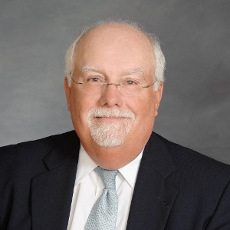 During this past year, the College has continually built upon the strong foundation we first laid out in Vision 2020. And since there will always be new challenges facing the specialty of allergy, the College is prepared and ready to support the practicing allergist at every new hurdle.
During this past year, the College has continually built upon the strong foundation we first laid out in Vision 2020. And since there will always be new challenges facing the specialty of allergy, the College is prepared and ready to support the practicing allergist at every new hurdle.
One of the biggest ways we’ve grown this year is our Annual Scientific Meeting. We’ve taken your feedback and used it to create an all-new Annual Meeting experience designed just for your needs. There are new session types, even more relevant topics, and still, the best cutting-edge research. The College’s Annual Meeting has always been special – a place where you can truly feel the collegiality that the College fosters. You can meet up and check in with old friends and colleagues, while also making new, important mentoring relationships with the next generation of allergists. That’s one thing that we will never change – the closeness, friendliness and intimacy of our Annual Meetings. If you haven’t yet registered for our best meeting experience yet, you still have time! And if you can’t make it to Seattle in person, you can watch key plenaries and symposia from Saturday and Sunday with our Virtual Meeting.
We’ve continued to grow our Practice Management Center, and it’s flourishing. We have added so many new important tools and resources to it – which we will continue to do. It’s the most-visited page on the College website, and we frequently receive rave reviews from members who use the tools. Our Prior Authorization Appeal Letter Generator is especially helpful for patients starting on biologic therapy. You can easily craft customized, scientifically-based appeal letters for five drug and condition combinations – Cinqair for asthma, Dupixent for atopic dermatitis, Nucala for asthma, and Xolair for asthma and urticaria. We are working on more drug and condition combinations. And the letters are all HIPPA-compliant. In our constantly shifting health care environment, I can’t stress the value of our Practice Management Center enough.
The College’s Advocacy Council has been hard at work over the last year, as it always is. Because of their work, the latest revision of the United States Pharmacopeia (USP) Chapter 797 appears to be on track to allow allergists to be able to provide individualized immunotherapy treatment vials for patients. The Advocacy Council has worked with other organizations along with the USP Expert Committee for safety improvements that should be attainable by the practicing allergist.
The Advocacy Council has also met with the Centers for Medicare and Medicaid Services (CMS) to discuss the dramatic cost increase in venom extracts. At that same meeting, the Advocacy Council brought up that our overall costs for allergens have increased, and how the 2019 proposed Physician Fee Schedule cuts would create a significant burden for allergists. The good news is that CMS signaled they are willing to review what they discussed, and the Advocacy Council is hopeful for a positive outcome.
The Advocacy Council has been working with other medical associations to send several letters to CMS concerning the proposed 2019 Physician Fee Schedule – specifically the rules affecting evaluation and management (E&M) services. While the reduction in paperwork is appreciated, we won’t stand by and let allergists be affected by other parts of the proposed Fee Schedule. The Advocacy Council is here to make sure the voice of College members is heard, loud and clear, regarding any issues that would affect them. And in our current health care landscape of new and changing regulations, the Advocacy Council is more important than ever before.
And finally, the College’s Yardsticks have become a must-have resource for practicing allergists. We’ve published three in the Annals of Allergy, Asthma and Immunology so far, including atopic dermatitis (Jan. 2018), severe asthma (Feb. 2017 along with an update in Aug. 2018) and pediatric asthma (April 2018). All three define the necessary interventions to address the lack of symptom control experienced by certain patients and to identify the patients who are appropriate for each intervention. We are currently working on asthma step-down therapy and idiopathic anaphylaxis, which will both focus on the same key mission as those that came before. All the Yardsticks are open-access and are living documents that are updated regularly.
We’ve had another strong year at the College – made possible by the work of countless physician volunteers and a strong administrative staff at the executive office. We wouldn’t be where we are today if it were not for College members letting us know what is important to them. You completed our biennial member survey, and we are incorporating the results into our work for the coming year. The College strives to meet the needs of all members, and it’s with your input and engagement that we are consistently able to do so.
While a part of me is a bit sad to turn over the gavel at this year’s Annual Business Meeting, I know that my successor, Todd Mahr, MD, FACAAI, will bring a new year full of innovative ideas and is prepared to meet new challenges head-on. It’s never easy to be the president – but when your work is as important as the College’s, it’s so rewarding.
Bradley E. Chipps, MD, FACAAI
ACAAI President
